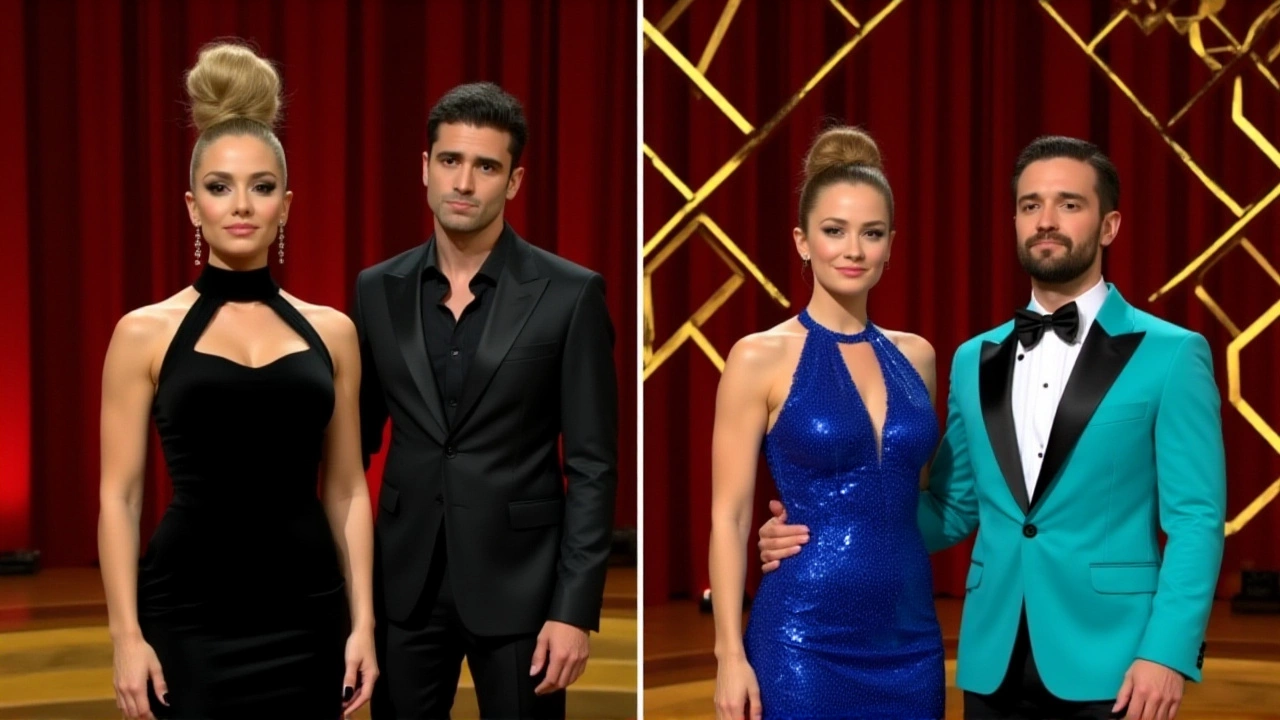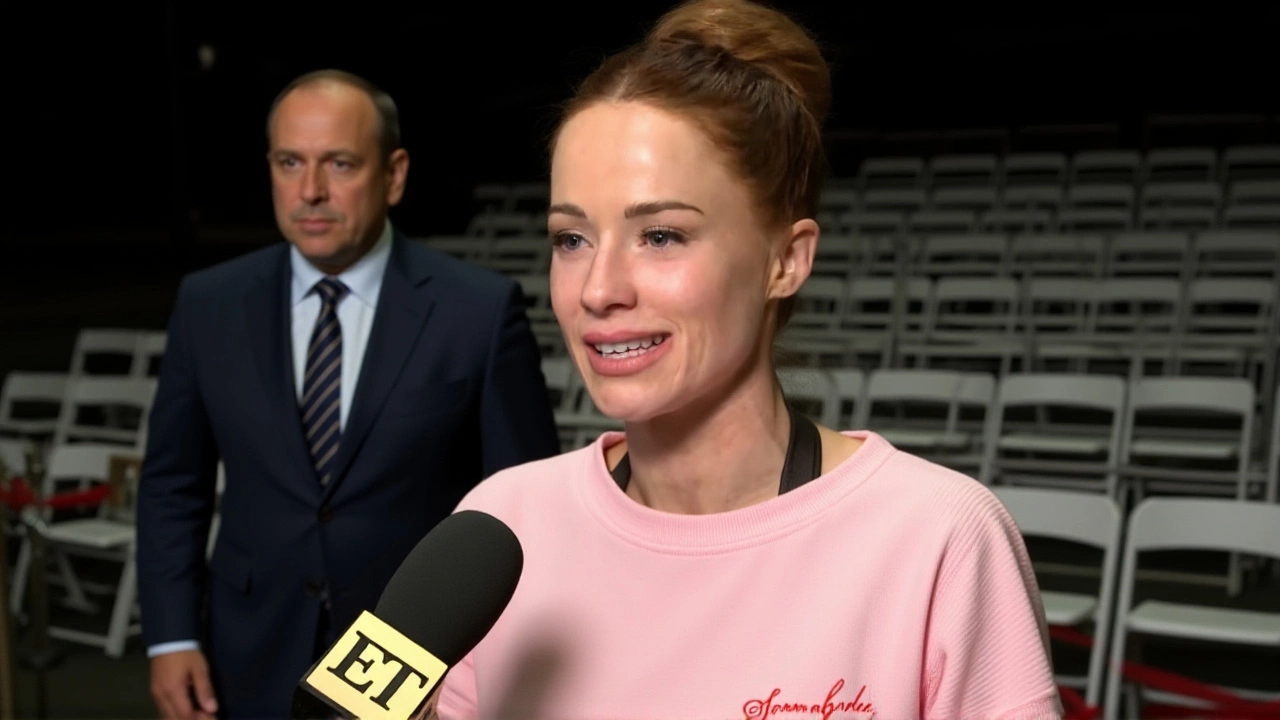Whitney Leavitt, the Utah-based influencer and star of Hulu’s The Secret Lives of Mormon Wives, was shockingly eliminated from Dancing with the Stars ABC Television Center during the semifinals on November 18, 2025 — despite earning a jaw-dropping 58 out of 60 points from the judges. Her performance, a flawless cha-cha to Charli XCX’s "1999" and a haunting Viennese waltz to D’Angelo’s "Slow Love," tied for the second-highest score of the night. But when the audience votes were tallied, Leavitt and her partner, six-time champion Mark Ballas, fell short. The result stunned fans, critics, and even former contestants. "I already feel like a winner," Leavitt said tearfully during her exit interview. "This show has absolutely meant the world to me."
How a Perfect Score Still Wasn’t Enough
"Villains Get Paid" — The SLOMW Effect
Former Dancing with the Stars contestant Andy Richter, eliminated the week before, didn’t hold back in Entertainment Weekly. "I think Whitney going home? Absolutely insane," he said. "She’s an amazing dancer." Richter revealed he confronted Leavitt about her villainous portrayal on The Secret Lives of Mormon Wives. Her response? "Well, villains get paid." He called it "sly (and dare we say iconic?)" That moment went viral. For viewers who saw her as manipulative or performative, it confirmed a narrative. For others, it was refreshing honesty — a woman owning her brand. But in a competition where viewers vote with their hearts as much as their eyes, perception often trumps performance. Leavitt’s elimination wasn’t about dance technique. It was about cultural baggage.Mark Ballas: Proud, But Heartbroken
Mark Ballas, a veteran of 20 seasons and the most decorated pro in Dancing with the Stars history, didn’t sugarcoat it. Speaking with Extra on November 19, he said, "I’m proud of the work we did. It sucks to fall at the last hurdle." But he also hinted at something bigger: "There’s things in the pipe that we can’t say yet. It’s coming." Ballas, who’s been with the show since Season 2 and is the son of legendary coach Mark Ballas Sr., knows how the game works. He’s seen winners crumble and underdogs rise. But this one stung. "This season had kind of like how it was back in the day — the intensity, the excitement," he added. His words suggest the show’s producers may have been trying to recapture its golden era — and Leavitt, with her authenticity and raw energy, was a perfect fit. Too perfect, perhaps, for the voting public.Why This Matters Beyond One Elimination
Leavitt’s exit isn’t just about a reality TV show. It’s a case study in how social media personas influence mainstream entertainment. She didn’t just appear on The Secret Lives of Mormon Wives — she leveraged it. Her entire DWTS journey was tied to her influence in the "MomTok" community, a TikTok subculture of motherhood content centered in Utah. Her decision to return to MomTok after stepping away from the show in Season 2 wasn’t just personal — it was strategic. The fact that she was cast on DWTS because of her SLOMW fame signals a shift: reality TV no longer searches for "ordinary" people. It wants influencers with built-in audiences. But when those audiences are divided — when half the viewers see you as a villain and half as a hero — the math gets messy. Leavitt didn’t lose because she danced poorly. She lost because the show’s dual-voting system now reflects cultural friction, not just talent.
What’s Next for Leavitt and Ballas?
The finale of Dancing with the Stars Season 32 airs next Tuesday. Five couples remain, though their identities aren’t yet public. Leavitt, meanwhile, is already looking ahead. Her team has reportedly lined up projects — possibly a docuseries, a book deal, or even a spin-off tied to MomTok. Ballas, ever the pro, is already in talks for a new dance tour. For Leavitt, this isn’t an ending. It’s a pivot. She turned a reality TV role into a national platform — and walked away with more than a trophy. She walked away with a legacy: the first influencer to reach the DWTS semifinals while openly using her show’s drama as fuel.Behind the Scenes: The SLOMW Connection
The Secret Lives of Mormon Wives was filmed in Salt Lake City and produced by Vertical Entertainment. Season 3, which dropped on November 13, became a cultural lightning rod. Online, fans debated whether Leavitt was manipulative, misunderstood, or just unapologetically herself. Her confession about returning to MomTok specifically to audition for DWTS was one of the season’s most talked-about moments. It also raised questions: Was she playing the game? Or was the game playing her? The answer might be both. And that’s what makes her story so compelling.Frequently Asked Questions
Why was Whitney Leavitt eliminated despite having the second-highest score?
Whitney Leavitt and Mark Ballas earned 58/60 points from judges — tied for second highest of the night — but public voting accounted for 50% of the outcome. Despite her strong performances, her portrayal as the "villain" on Hulu’s The Secret Lives of Mormon Wives likely turned off a portion of the audience, causing her to lose the vote despite outscoring other couples.
How did her role on The Secret Lives of Mormon Wives impact her DWTS journey?
Leavitt openly admitted she returned to the MomTok community specifically to audition for DWTS after learning the show planned to cast someone from The Secret Lives of Mormon Wives. Her unapologetic "villain" persona, including her now-famous line "villains get paid," made her a polarizing figure — boosting viewership but potentially costing her audience sympathy during voting.
Is Mark Ballas leaving Dancing with the Stars after this season?
No, Mark Ballas is not leaving. The six-time champion has been on the show since Season 2 and remains one of its most enduring pros. After Leavitt’s elimination, he hinted at upcoming projects — likely a dance tour or new TV venture — but confirmed he’ll continue dancing on DWTS. His career is far from over.
What does Whitney Leavitt’s elimination say about reality TV today?
Her elimination highlights how reality TV now prioritizes audience perception over pure skill. Influencers with large followings are cast for their brand, not their talent — but when their image divides viewers, the voting system can punish them despite excellence. Leavitt’s story proves that in 2025, being the most skilled dancer doesn’t guarantee survival — being the most likable does.
